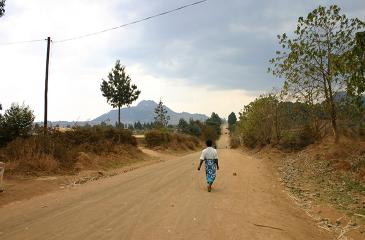A Sustainable Development Goal Project Supported by OACA
Gender-based violence (GBV) is rooted in gender inequality and encompasses acts harmful to women that adversely affect their health outcomes. For refugee women of childbearing age, GBV has important implications for maternal morbidity and mortality. Refugee women who flee to low-income countries like Malawi are faced with additional vulnerabilities associated with being located in a country already wrought by poor maternal health indicators related to gender inequality.

Led by Lucy Mkandawire-Valhmu, PhD, RN, FAAN, a new mixed methods study will provide foundational knowledge about the experiences of GBV in the lives of childbearing women living at a Dzaleka refugee camp in Malawi.
"Having the opportunity to lead our team in conducting this study means a lot to me. The study involves partnership and collaboration among scholars not only at the University of Minnesota, but also the University of Washington Seattle, University of Wisconsin Milwaukee and Kamuzu University of Health Sciences," said Mkandawire-Valhmu, who is a professor in the School of Nursing. "Being able to conduct this study is also especially meaningful because we will be able to obtain knowledge that will advance our ability to meet the healthcare needs of refugee women not only in refugee camps on the African continent, but also refugee women resettled here in the Upper Midwest. Our goal is to contribute to the advancement of gender equity and to improve the health of women who experience the greatest vulnerability."
Mkandawire-Valhmu expects to begin data collection this fall.



